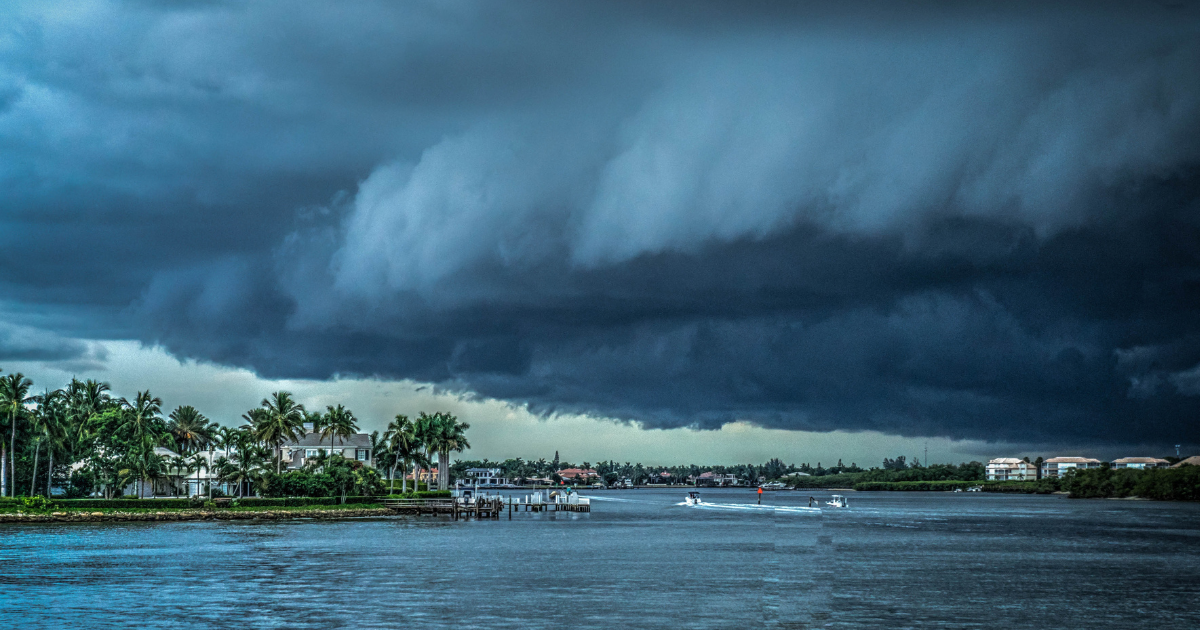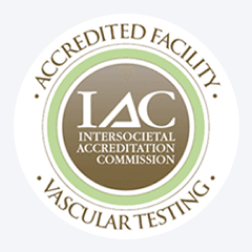When hurricane season arrives in Tampa, preparation is key; not just for your home, but for your health. For individuals with vein and vascular conditions, limited mobility, swelling, and stress during a storm can lead to serious discomfort and complications.
Vein issues like varicose veins, chronic venous insufficiency (CVI), and deep vein thrombosis (DVT) already impact daily life. But when you’re stuck indoors for extended periods or dealing with the stress of an emergency, symptoms can intensify. That’s why understanding how to care for your veins during hurricane season is essential.
Why Vein Health Matters During Hurricane Season
Vein and vascular conditions affect the body’s ability to circulate blood effectively. Normally, veins in your legs push blood back to your heart using one-way valves. But when those valves become weak or damaged, blood can pool in your lower limbs, leading to swelling, pain, and visible varicose veins.
During hurricanes, mobility is often limited, either from being inside for long periods or evacuating and sitting in a car or shelter. This inactivity can worsen circulation issues and increase the risk of complications like blood clots.
In addition, elevated stress levels during storms can affect your overall health, including your vascular system. Anxiety increases blood pressure and can interfere with healthy habits like staying hydrated or eating well.
If you’re already dealing with a vein condition or have a family history of vascular issues, it’s especially important to be mindful during storm season.
Symptoms You Shouldn’t Ignore
Whether you’ve been diagnosed with a vein condition or are just starting to notice symptoms, here’s what to look for:
- Swelling in the legs or ankles
- A heavy, aching, or throbbing sensation
- Itching or burning near the veins
- Skin changes like discoloration, hardening, or ulcerations
- Bulging or visible varicose veins
If you experience these symptoms, especially during times when you’re moving less than usual, it’s important to speak with a vein specialist.
How Limited Mobility Can Affect Vein Health
Hurricane season often means canceled plans, missed walks, and staying indoors for long stretches. Unfortunately, inactivity is one of the biggest contributors to worsening vein symptoms. Sitting or standing still for long periods makes it harder for your veins to push blood upward, increasing the risk of swelling and discomfort.
Even evacuation can be a risk factor, sitting for hours in a car or shelter may limit circulation and increase your chances of blood clots, particularly if you have a history of DVT.
Tips to Maintain Vein Health During Storm Season
Staying proactive about your health, even during a storm, can help prevent complications and manage symptoms effectively. Here are several tips to support healthy circulation during hurricane season:
1. Keep Moving (Even Indoors)
Just because you’re stuck inside doesn’t mean you have to be inactive. Simple stretches, gentle yoga, or walking laps around your home can help get your blood flowing. If you have access to a stationary bike or treadmill, even better.
2. Elevate Your Legs
When resting, try to elevate your legs above heart level. This helps reduce pressure and swelling and supports better blood flow back to your heart.
3. Wear Compression Stockings
Compression stockings provide gentle pressure that improves circulation and prevents blood from pooling in your legs. If you expect to be sedentary during a storm or evacuation, consider wearing them during the day.
4. Stay Hydrated
Dehydration can cause your blood to thicken, increasing the risk of clots. Make sure to drink plenty of water throughout the day—especially if you’re sweating, under stress, or drinking caffeine or alcohol.
5. Eat a Balanced Diet
A fiber-rich, low-sodium diet can help reduce inflammation and pressure on your veins. Stock up on whole grains, leafy greens, and fresh fruits and vegetables before the storm hits.
6. Avoid Prolonged Sitting or Standing
Set a timer to remind yourself to move every 30 minutes. If you’re unable to walk, try ankle pumps, toe raises, or flexing your calves while seated.
Don’t Delay Medical Care
If you’re experiencing worsening symptoms or have concerns about your vein health, don’t wait until the storm passes to act. At United Vein & Vascular Centers, we offer flexible scheduling, comprehensive consultations, and compassionate support to help you stay on track, even during stressful times.
Regular checkups with a vein specialist can help you manage existing conditions and catch potential issues early. Our Florida-based vein experts can help you develop a personalized care plan tailored to your lifestyle and health goals—especially important when seasonal disruptions like hurricanes occur.
Minimally Invasive Treatment Options
You don’t need to live with the discomfort of varicose veins or chronic swelling. Today’s treatments are minimally invasive, require little to no downtime, and can be performed right in our office.
Popular treatment options include:
- Sclerotherapy: Injections that close off smaller varicose veins or spider veins
- Endovenous Laser Treatment (EVLT): A laser fiber is inserted into the vein to seal it shut
- Radiofrequency Ablation (RFA): Uses heat to close off problem veins with minimal discomfort
These procedures can improve both the appearance and health of your legs and help you feel more comfortable all year round, including during storm season.
Our Commitment to Your Vein Health
At United Vein & Vascular Centers, your well-being is our top priority. We understand how vein issues can impact your life, especially during unpredictable times like hurricane season. That’s why we’re here to support you with personalized care, advanced treatment options, and a team that truly listens.
Whether you need advice on managing symptoms or are ready to explore treatment, our experienced providers are here to guide you every step of the way.
Take the First Step Toward Relief
Preparing for hurricane season doesn’t just mean stocking up on batteries and supplies, it also means protecting your health. If you’re living with vein symptoms, now is the time to take action.
Schedule a consultation with our vein experts today and learn how we can help you stay healthy, active, and comfortable, no matter what the weather brings.
Find a Vein & Vascular Specialist Near You
With 45+ locations nationwide, expert vein and vascular care is closer than you think. Find your nearest United Vein & Vascular Center and start your journey toward improved circulation and mobility.
Frequently Asked Questions
Severe weather often leads to limited mobility, increased stress, and prolonged periods of sitting or standing, which can worsen symptoms like leg swelling and discomfort for those with vein conditions.
Engage in light indoor exercises such as stretching, leg lifts, or walking in place. Elevating your legs and wearing compression stockings can also help reduce swelling.
If symptoms like leg pain, swelling, or visible veins intensify, contact a vein specialist as soon as it is safe to do so. Early evaluation can help prevent complications.


